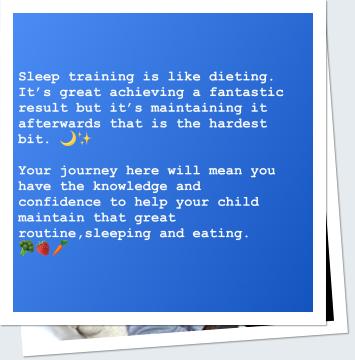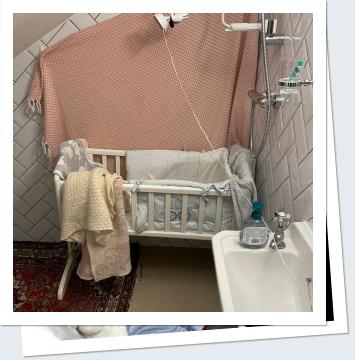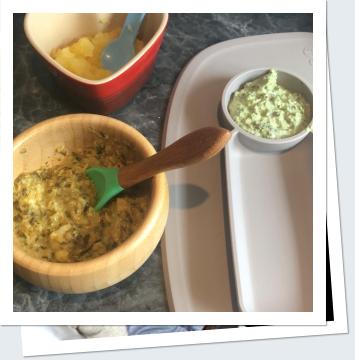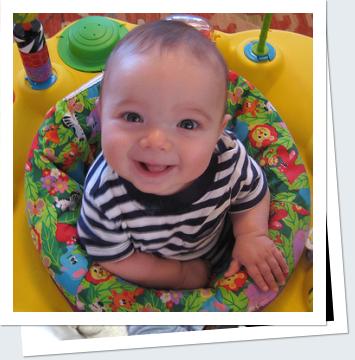Trustpilot Reviews.

100 reviews on Trustpilot in just 10 months!
Rated excellent 4.9

100 reviews on Trustpilot in just 10 months!
Rated excellent 4.9

A brand new programme on parenting over a 4 part series just started on UK TV Channel W. I am in episode 1 working with both Katherine and Katherine's partner Billy in their home among the chaos of a busy family life. This is what I do every week visit families and change their lives for the better. Happy to come and unravel your family challenges so life is calmer and easier.


Sleep Training....

Making the most of space.
Living in London or anywhere is expensive and we don't always have enough space.
The family here improvised for their 5 month old baby. As long as the circulation in the bathroom was good it worked.
Babies and toddlers are not concerned too much about where they sleep as long as they are safe, comfortable and have their regular comforters around them. What is more important to them is their routine and who is caring for them.

I was very lucky to meet Sam Knight a very talented and creative writer for The New Yorker magazine. After sleep training his twin boys I was privlidged to have an article written about his experience of the training and my work. You can read it here....https://www.newyorker.com/magazine/2021/06/28/the-promise-and-the-peril-of-a-high-priced-sleep-train

As soon as a child is ready to be weaned it is my advice to start decreasing the milk gradually to make room for solid food. I feel we drink too much milk in the UK and too much emphasis is put on how much milk should be in the child's diet. The NHS give us a recommended amount but in addition to the milk children can be introduced to other dairy foods like cheese and yogurt. This also accounts for their total dairy intake.
Many children have an intolerance to dairy so why place so much emphasis on milk? When their diet starts to become more varied with different foods it contains the vitamins and nutrients children need for their growing bodies. It's like a pair of scales, while we continue to give milk as the basis of the baby's diet the scales start to rise in favour of food but dip with the milk intake.
Bring it on! Big boys really get into eating solid foods and milk becomes less important. Food is the direction you are going. A mixture of mushed up food and finger food gives your child the opportunity to experience texture, hand/eye co-ordination, taste, social skills, language, smell as well as being a pleasurable experience.

Two babies both 8 months old. One sleeps from bedtime to 7am the other wakes 3/4 times a night and still drinks a small amount of milk overnight.
Which baby is the happiest baby?
Answer: The baby who sleeps all night!
It is the same for a baby as it is for us, we are much happier in the day if we have slept all night. The baby who sleeps will be better bahaved, eat well and enjoy the routine more.
Get in touch and let's get it sorted.... Don't let your baby or you and your family suffer because of the waking nights.

While children can be challenging at the best of times, this period of lockdown due to the coronarvirus has made parenting even more challenging. It is not easy being cooped up at home in a flat or house with no garden or outside space. Not having the usual distractions of a daily routine of NCT coffee meetings, nursery, playgrounds, classes, play dates, etc. are no longer happening. Some families living in built up areas are lucky enough to have some outside space or even a garden but getting out for some families has become a bit of an ordeal.
So well done to all those parents who have to balance the needs of everyone, stretch their immagination, home school their children, spend hours in a confined space of a flat and not get the usual breaks of school, nursery or other childcare that would normally help us get through the day. You are all doing a great job!

Why is it important not to nap your child reguarly in the pram, car, sling or anywhere else but the cot? If you do you are setting yourself up with a habit that is hard to sustain and impractical to continue. Your baby is not in a comfortable place if they are in the car or pram. It could be noisey, too light, not ideal for their posture, hot, and too bumpy, plus the weather could be bad! Your baby or child needs to be in a quiet place where there is no loud noises and they are able to resettle themselves if they wake up after a sleep cycle. They will get use to the motion of a car, sling, or pram which they rely on to go back to sleep. They can be disturbed if not at home and find it hard to go back to sleep. This is time in the day you have to yourself, to do what you want and catch up with your day to day jobs. You can relax, take a nap yourself, eat, send an email, or make a phone call without having your child around to disturb you. Taking a nap occasionally outside the cot is fine and any short naps can be taken on the go. The cot could be at another house, a travel cot, you may be on holiday, or just visiting somebody for the day. It also helps to settle your child into a routine if cared for by somebody else like a nursery or childminder. Making a commitment to nap your child in the cot as much as possible will pay off later when they have learnt to settle and resettle themselves without you to assist them.